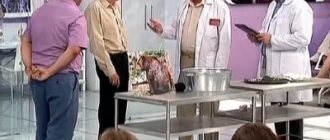Author Anna Smirnova
21.05.2020 21:00
Health » Health and prevention
Everything we eat goes into the stomach, and then into the intestines, where the main digestion of food occurs with the release of useful substances. But each food or drink requires the body a certain time.
How long does it take for food to leave the stomach?
Typically, food moves from the stomach to the small intestine within 2–4 hours.
The exact timing may depend on several factors, such as the composition and size of the meal, hormones and gender. Women tend to digest food more slowly than men.
When food enters the stomach, the following happens:
- Relaxation. The upper part of the stomach relaxes to accept the food you have eaten. This is why your stomach may look a little bloated after eating.
- Digestion. Your stomach uses rhythmic churning and grinding (mechanical digestion) as well as stomach acid and enzymes to break down food.
- Emptying. The sphincter pushes small amounts of food to gradually empty the stomach and move into the small intestine.
After leaving the stomach, food passes through the intestines:
- Small intestine. In the small intestine, food is mixed with additional digestive fluids. This is where most of the nutrient absorption occurs. Food can remain in the small intestine for 2 to 6 hours.
- Colon. In the large intestine (large intestine), water is absorbed and the remains of digestion are turned into stool. Waste products from your food spend about 36 hours in the large intestine.
In general, it may take 2 to 5 days for food to pass through the entire gastrointestinal tract.
Three rules of nutrition after gastric surgery
Experience shows that even with total removal of the stomach, the intestines and pancreas well compensate for the lack of gastric digestion. If belching or bitter regurgitation appears, you should limit cream, sour cream, sour and salty foods. They enhance these phenomena. They can be replaced with jelly, jelly, jelly, etc.
The absorption of food is influenced by the three most general patterns: 1. the relationship between the chemical composition of food and enzymes of the digestive tract, 2. the balance of the composition of food according to essential nutritional factors, and, finally, 3. compliance with a certain physiological rhythm of food entering the body, i.e. . strict diet.
Can some foods move through the stomach more slowly or faster?
The composition of food can play a big role in how long it takes for food to leave the stomach.
Let's look at some important nutritional factors that can affect how long it takes for your stomach to empty.
Subsequence
Fluids usually leave the stomach quickly. For example, after you drink a glass of water, it is estimated that only 50 percent of it will remain in your stomach after 10 minutes.
Solid foods often require further breakdown and further liquefaction, meaning it usually takes longer to leave the stomach. In fact, it usually takes 20 to 30 minutes before solid food begins to leave your stomach.
Calorie content
Regardless of consistency, foods and drinks with lower calorie content usually leave the stomach faster. Higher calorie foods and drinks will take longer.
For example, while water leaves the stomach at a rapid rate, a higher-calorie liquid, such as a glass of fruit juice or a milkshake, will exit more slowly.
Nutrient content
Foods and drinks rich in carbohydrates and proteins are more easily broken down in the stomach and, as a result, leave it faster.
However, foods high in fat and fiber spend more time in the stomach. This is why you may feel fuller longer if you eat foods high in fat or fiber.
Volume
The size of your food can affect the speed at which food leaves your stomach.
It is important to note that solid foods often have a delay period before gastric emptying begins. However, after this delay period, larger portions of food become empty faster than smaller portions.
How should the ratio of gastrointestinal tract change after gastric surgery?
Increased amounts of protein
must be included in the diet .
Among proteins, there is a hierarchy of the need for enzymes for their digestion: chicken egg white is the easiest to digest, then comes milk protein, which is one of the first places in terms of nutritional value. Next comes fish protein and then chicken, turkey, and animal proteins. The latter require quite a lot of enzymes, so it is better to prepare them in a thermally processed form. Culinary processing significantly increases digestibility, and with it the biological value of proteins. The amount of carbohydrates should be limited to prevent carbohydrate metabolism disorders and the occurrence of dumping syndrome. Reducing carbohydrates allows you to reduce the amount of food introduced. Carbohydrates are the main source of energy for the human body. Sources of carbohydrates in the diet are products of plant origin: yesterday's bread, cereals, potatoes, vegetables, fruits, berries, as well as sugar, honey, milk sugar in milk.
It has long been known that the digestive glands adapt to the composition of food: when the ratio of proteins, fats and carbohydrates in food changes, the composition of pancreatic juice will adequately change. The absorption of food proteins depends on the ratio of all nutrients in the diet, primarily fats, carbohydrates, vitamins, and minerals.
Fats support the metabolic processes constantly occurring in the body. Fats are needed both animal and vegetable in small quantities. It is important that vitamins A, E, D and K enter the body with fats, which do not dissolve in water.
After gastric surgery, the diet should be complete and contain sufficient amounts of vitamins. Pay special attention to vitamin B12 and folic acid, especially if the patient has anemia (see above).
In view of the often observed decrease in appetite after surgery, foods with high calorie content should be introduced into the diet . You need meat and fish dumplings, butter, cream, and broths. It is allowed to consume dairy products, cottage cheese, sour cream, and soft-boiled eggs. Include in your diet boiled and mashed porridge, vegetable and fruit purees, baked vegetables and fruits, stewed vegetables, jelly, compotes, jelly, jelly.
Is there a way to tell if your stomach is empty?
If you haven't eaten for several hours, your stomach is likely empty.
However, keep in mind that how quickly your stomach empties can vary depending on what you eat and other factors. Because of this, time may not always be a very accurate indicator of an empty stomach.
When your stomach is empty, you may experience physical symptoms of hunger. Here are some of them:
- rumbling stomach or pain;
- weakness;
- headache;
- irritability.
Treatment and prevention of indigestion symptoms in children
General recommendations that may help:1
- A constant daily routine and food intake, when the body gets used to and promptly produces enzymes to digest food.
- Regular split meals - eating small portions up to 4-6 times a day will help prevent overeating and adhere to the regime.
- Chewing thoroughly and eating in moderation.
- Balanced food composition or compliance with doctor’s recommendations (if any).
- Gradual introduction of new products (for children or on vacation in exotic countries).
- Drinking enough water: from 600 ml from six months to 2600 ml in adolescents. It is important that children always have access to clean drinking water.
Try to follow the recommendations on a regular basis, they can reduce or prevent the onset of indigestion symptoms in children.
Taking medications on an empty stomach
Some medications must be taken on an empty stomach. There are several reasons for this.
First, oral medications are absorbed into the bloodstream through the lining of the gastrointestinal tract. Because of this, having food in your stomach may slow down the absorption of the medicine, making it less effective.
Second, there are foods that can interfere with the way certain types of medications work. This could potentially increase or decrease the level of the drug in your body. This type of interaction is called food-drug interaction.
Here are some examples of food-drug interactions:
- Grapefruit. Grapefruit may increase blood levels of certain medications. Examples include some statins and blood pressure medications.
- Vitamin K: Foods high in vitamin K, such as spinach, kale, and Brussels sprouts, may reduce the effectiveness of the blood thinner warfarin.
- Fatty dishes. Eating a high-fat meal may reduce the level of esomeprazole, a proton pump inhibitor, in the bloodstream.
If food intake may affect the medication, your prescription will instruct you to take it on an empty stomach.
List of easily digestible and difficult to digest foods
You should also know that food products are divided into two types: easily digestible and difficult to digest.
Easily Digestible Foods
The first include all fruits and vegetables rich in fiber, which the body loves so much. Of course, if we are talking about a reasonable amount of them in consumption.
By the way, if the vegetables are grilled or simply boiled, they will be digested even faster.
Also, the gastrointestinal tract will not have difficulty digesting various cereals.
This is followed by chicken and turkey meat (boiled) and low-fat fish, steamed or boiled.
Hard-to-digest foods
As for animal meat, it refers to products that are not easily absorbed by the body.
This is beef, lamb, pork. And, of course, lard.
The body, unlike the brain, really does not like sweets and various street foods, such as fast foods.
Not only does it cause a number of difficulties for the digestive system during digestion, but it also causes harm to the body.
Therefore, if you really want to eat something harmful, you should do it in the first half of the day. Although, of course, it is better to refuse.
And in general, eating in the evening is not the best idea.
As Alexander Pushkin once said: “Not having dinner is a holy law for those who value light sleep most of all.”
The stomach needs a lot of time to “deal” with high-fat hard cheeses, as well as chocolate and ice cream.
If you need to take medications with food, when should you do it?
Sometimes you may be prescribed medications to take with food. There are several reasons for this:
- Reduces side effects. Some medications, such as nonsteroidal anti-inflammatory drugs (NSAIDs) and corticosteroids, may cause stomach upset when taken on an empty stomach. Having food in your stomach may reduce the likelihood of these side effects.
- This helps with illness. Food intake affects some health conditions, such as diabetes or heartburn. This is why it is important to take medications for such conditions with food.
- This helps in absorption. Sometimes eating food in the gastrointestinal tract can help with the absorption of the medicine. This is true for some types of HIV medications.
If you have a medication that you need to take with food, try to coordinate your medication with meals.
Always follow the directions on your prescription package and ask your doctor or pharmacist with any questions.
If you find an error, please select a piece of text and press Ctrl+Enter.
Why does heaviness occur?
A feeling of a full stomach is one of the common symptoms of indigestion. It can appear in anyone, even without any diagnosis. Here is a list of common situations where this problem occurs:1
- binge eating;
- excess fat in food;
- previous intestinal infections;
- unusual food, for example when traveling;
- bad habits: alcohol and smoking;
- stress, emotional turmoil.







